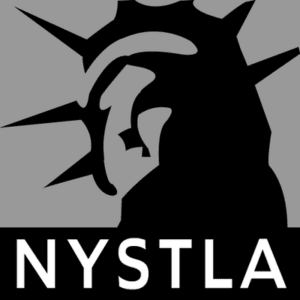Personal injury cases are often navigated through a process called mediation. This method, widely embraced in the legal sphere, offers a pathway for both plaintiffs and defendants to seek resolution outside the confines of a courtroom. But what exactly is mediation, and how does it function within the framework of personal injury cases? More crucially, is mediation legally binding in personal injury cases? Let’s delve into these inquiries and more, exploring the nuances of mediation and its legal implications in the context of personal injury law.
Understanding Mediation
Mediation stands as a cornerstone of alternative dispute resolution, a method aimed at resolving legal conflicts without the need for a trial. In a mediation session, both the plaintiff and defendant convene with a neutral third party — often a retired judge or seasoned lawyer — known as the mediator. Unlike the formal setting of a courtroom, mediation offers a more relaxed atmosphere where parties can openly discuss their grievances, concerns, and proposed resolutions.
One of the primary distinctions of mediation lies in its nonbinding nature. Unlike a court trial where rulings are legally enforceable, the agreements reached in mediation are not legally binding. However, this doesn’t undermine the significance of mediation; rather, it underscores its role as a platform for negotiation and compromise.
The Role of Mediation in Personal Injury Cases
In the realm of personal injury law, where emotions run high and financial stakes are significant, mediation serves as a vital tool for reaching amicable resolutions. By engaging in mediation, parties can explore settlement options, discuss potential compensations, and work towards mutually agreeable outcomes.
Mediators, equipped with a deep understanding of personal injury law, facilitate discussions between parties, guiding them towards feasible solutions. Through a series of discussions, presentations, and negotiations, mediated settlements can be crafted, offering a faster, more cost-effective alternative to courtroom litigation.
Is Mediation Legally Binding in Personal Injury Cases?
Mediation is legally binding if it is recognized as so by the courts. Both parties, often with the assistance of their attorneys, review the settlement agreement to ensure it accurately reflects their understanding and agreement. Once reviewed, both parties sign the document. In some cases, especially where litigation was already initiated, the settlement agreement may need to be submitted to the court for approval. This step is particularly important if the settlement involves minors or individuals deemed incompetent.
Once signed, the settlement agreement can be presented to the court. The court will review the agreement to ensure it is fair and equitable. Upon approval, the court will enter the agreement as a court order, formalizing the agreement and making it enforceable by law. The settlement agreement, once entered as a court order, becomes legally binding.
Both parties are obligated to comply with the terms, and failure to comply can result in legal consequences, including enforcement actions by the court. If a party fails to comply with the settlement terms, the other party can seek enforcement through the court. The court can impose penalties, order specific performance, or take other actions to ensure compliance.
Exploring the Mediation Process
Delving deeper into the mediation process, it’s essential to understand the sequence of events and the roles played by various stakeholders. The process typically begins with both parties agreeing to mediation, either voluntarily or as mandated by the court. Once convened, the mediator facilitates discussions, allowing each party to present their perspectives, concerns, and proposed solutions.
During these discussions, attorneys from both sides play a pivotal role in advocating for their clients’ interests. They present case briefs, evidence, and arguments in support of their positions, aiming to sway the mediator and the opposing party towards a favorable resolution. This stage often involves frank discussions and negotiations, with the mediator guiding the dialogue towards mutually acceptable outcomes.
As discussions progress, the mediator may opt to conduct private sessions with each party, known as caucuses. These sessions provide an opportunity for confidential discussions, allowing parties to express concerns, explore concessions, and strategize without fear of disclosure to the opposing side. The mediator shuttles between the caucuses, conveying proposals, counteroffers, and concerns, to bridge the divide and facilitate agreement.
Key Considerations in Mediation
Throughout the mediation process, several key considerations come into play, influencing the dynamics and outcomes of the proceedings. One such consideration is the willingness of both parties to engage in good faith negotiations. For mediation to be effective, parties must approach the process with a genuine desire to reach a resolution and a willingness to compromise on certain issues.
Another critical consideration is the role of legal representation. Having experienced attorneys by their side can significantly benefit parties during mediation, ensuring their rights are protected, their interests are advocated for, and their legal options are explored comprehensively. Attorneys provide invaluable guidance and support throughout the process, helping clients navigate complex legal issues and make informed decisions.
Additionally, the timing of mediation can impact its effectiveness. While mediation can occur at various stages of the litigation process, early intervention is often preferred, allowing parties to explore settlement options before significant time and resources are expended on litigation. However, mediation can also be successful at later stages, offering parties an opportunity to reassess their positions and explore creative solutions.
Related Videos
How should I choose a personal injury attorney for my claim?
Insurance companies dirty tricks
Advocating for You
Mediation emerges as a vital component in the resolution of personal injury cases, offering parties a platform for negotiation, compromise, and resolution.
At The Nicotra Law Firm, PC, we are committed to guiding our clients through the intricacies of mediation, leveraging our experience and dedication to pursue the best possible outcomes for their cases. Whether through mediation or litigation, we stand ready to advocate for our clients’ rights and pursue the justice they deserve.
For those navigating the complexities of personal injury law, The Nicotra Law Firm, PC offers steadfast support and unwavering advocacy. Contact us today to learn more about how we can assist you on your legal journey.








